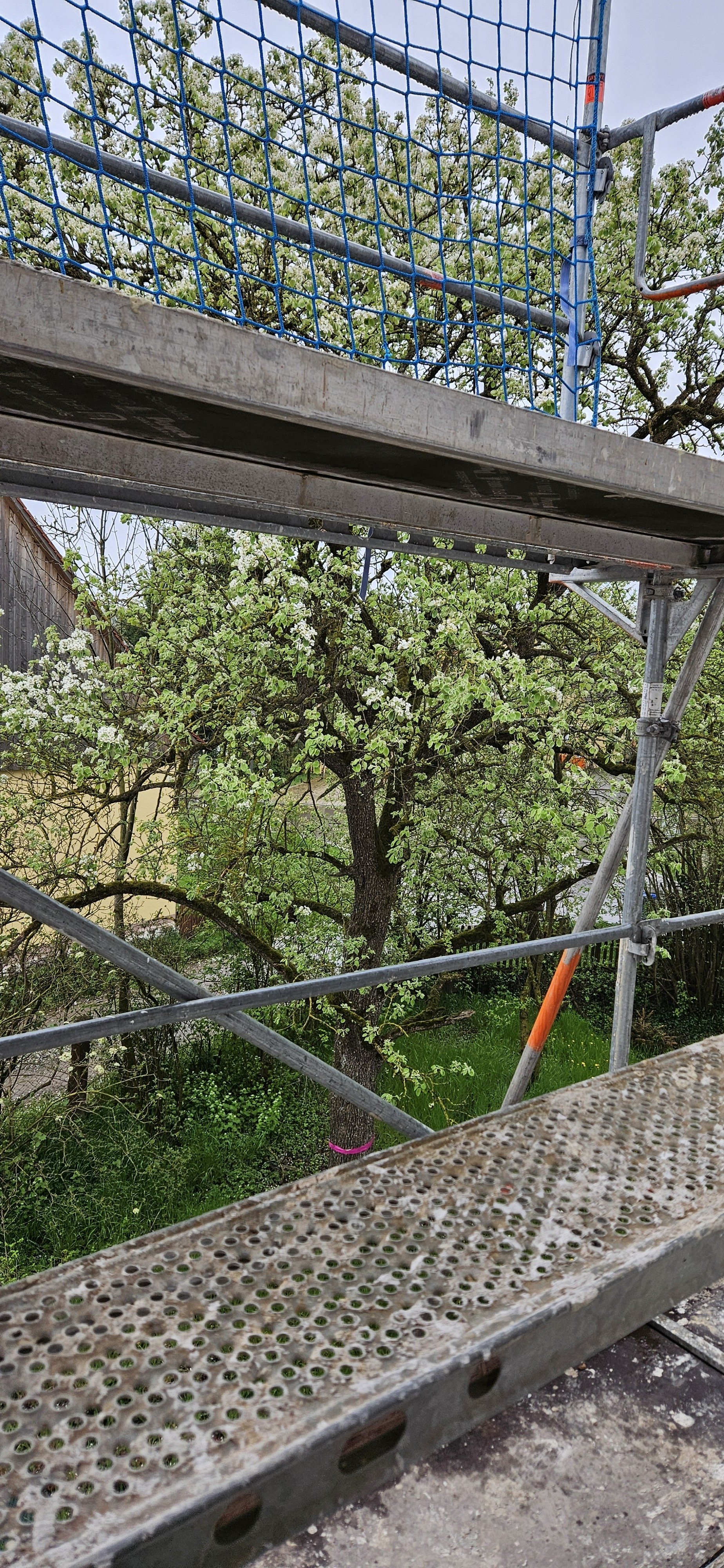Looks like a pear, apple, plum or a cherry, not well maintained, 10-15 years old. Probably an apple or pear based on the flowers? It also looks like it was maintained at one point, you can see the sub-canopy which was probably being managed as the main canopy out of the main fork, and then you can see how it got super leggy and out of control from that point, like no one did any maintenance or management to the tree for a while (3-5 years).
Kind of depends what you want. Fruit trees are great but do require work, especially in terms of branch maintenance. You can't just let them go or they'll tear themselves apart. So every year you would be doing branch management, otherwise it will split, good chance of getting diseased, produce less fruit, produce fruit in place that you cant get to or are a pain in the ass to get to, and otherwise looking like crap. Domesticated fruit trees have evolved under human management and require regular maintenance otherwise they generally don't do as well. They don't self-limb effectively. Then there is the annual fruit harvest. You may need to use a pesticide depending on where you live to get fruit if you have a significant pest load (depending on the species). If this wasn't a planted variety, its fruit might be of questionable quality, but you can't really know that till the fall (earlier depending on the species/ variety).
The easiest answer: Hire a professional tree trimmer to do a skeleton prune and take this raggedy boi way back, then put off the decision till next year. That will get the branches out of the way for the construction crew and you can have them ID the tree and make sure they leave some flowering branches so you get some fruit. Put the decision off until you get some fruit; figure out what kind of tree it is (you really can't tell as many of this species group apart until fruiting), and go from there. Regardless, a hard trim is necessary on that tree, and you don't know if its worth keeping until you get to try some fruit.
Second piece of advice, don't worry at all about pulling the tree if you end up going that way. There are some ridiculous poets in the comments here who obviously have no conception of where food comes from or what nature is and represents. Unless you live in Kazakhstan, this is a non-native species, and you should be thinking about it as it its a wrench, or hammer, or any other tool. Domesticated fruit trees are a tool that humans intercepted their evolutionary paths and made them into food producing machines. They don't exist in nature. If the tool isn't doing what you need it to do, you should feel no obligation to continue to use it if it isn't working. Trees and plants die CONSTANTLY in nature. Don't worry about pulling it what-so-ever. If you decide you don't want the work of maintaining a fruit tree (probably 1, 3-6 hour day in the spring, and 1, 3-6 hour day in the fall for maintenance), consider putting in a native tree that's ecologically appropriate for wherever you live. Native species (and this isn't one of them) are struggling everywhere. They need your help, and can represent a much easier to manage (you don't have to do anything) option to a fruit tree.
